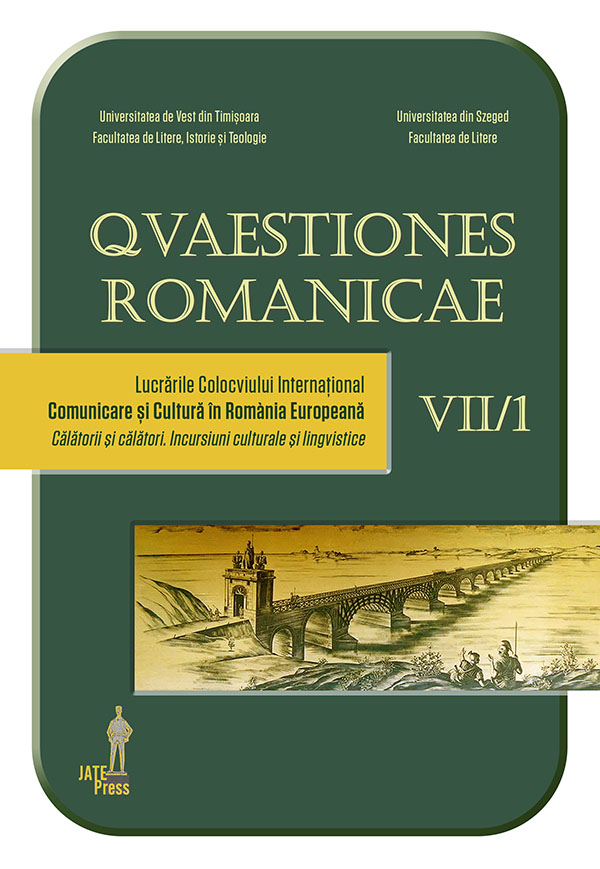Satyricon – rătăcire spre marginalitatea ființei
Abstract: (Satyricon - wandering towards the marginality of being) Satyricon, even if it’s held up fragmentarily, impresses both as architecture, language, characters structure and as the realism of the mentioned issues, Petronius proving himself as a fine and avid observer of the society. Cena Trimalchionis gives us the opportunity of observing all the anomalies of society, a fallen one, whose members seem to manage themselves naturally, succeeding in crossing all the barriers of human society without any kind of remorse. Under the guidance of Eumolpus, an unsuccessful poet in search of glory, Encolpius experiences total decay, assuming both the role of a fugitive slave but also the role of an old man slave in Crotona without any heirs, embodied by Eumolpus. This current study aims, through a typical analyse of the Petronian novel, to point out that the entire novel is a vast journey, which takes place both physically and psychologically and morally, a true outer and inner wandering of the characters who are looking and testing their limits at a dizzying pace. Being dissatisfied with the values of their world, they are searching for complementary ways of living to fit to their structure, marking and changing with every single place of their journey.
Keywords: wandering, events, dinner, decay, alienation.
Rezumat: Satyricon, deși păstrat fragmentar, impresionează atât la nivelul arhitecturii, cât și la nivelul limbajului, al structurii personajelor și al realismului aspectelor vizate, Petronius dovedindu-se a fi un fin și avid observator al societății contemporane lui. Cena Trimalchionis oferă prilejul observării tuturor anomaliilor societății, o societate decăzută ai cărei membrii par a se descurca foarte firesc, reușind să străbată meandrele societății umane fără a rămâne șifonați. Sub îndrumarea lui Eumolpus, poet ratat dornic de glorie, Encolpius experimentează decăderea totală, asumându-și statutul de sclav fugar, iar în Crotona, de sclav al bătrânului bogat și fără moștenitori întruchipat de Eumolpus. Prezenta lucrare își propune ca, printr-o analiză minuțioasă a romanului petronian, să evidențieze faptul că întregul roman reprezintă o amplă călătorie, săvârșită atât în plan fizic, cât și psihic și moral, o adevărată rătăcire exterioară și interioară a personajelor, care își caută și își testează limitele, într-un ritm amețitor. În egală măsură, nemulțumiți de valorile lumii lor, caută alte moduri de existență care să corespundă structurii lor, fiecare loc al călătoriei marcându-le, schimbându-le.
Cuvinte-cheie: rătăcire, peripeții, cină, decădere, înstrăinat.
